I have truly wanted to avoid posting anything about the rescuing of wild animals because it might offend some of the people on this forum, but the topic kept eating at me, so I thought I would share some information. I do not care if anyone agrees with me or not, that is not the point of this post. I only care that people make informed decisions.
I live in the mountains of northern California. 75 % of the land in this county is owned by the Federal government and is undeveloped and not open for human use.
Up here, the view of the local people about wild animals seems to be very different than what I experienced when I lived in a more urban environment.
Wild animals carry parasites that can often transmit either deadly or horrible diseases to humans and even saving one of them can have far ranging consequences. Every year I read about someone having to have treatment for rabies because one of the feral cats they have been feeding for years suddenly attacked them.
I am friends with the head of the Animal Control department and she has told me that more than 80% of the rescued animals brought to the shelter are diseased and must be put down. We are taught, through newspaper articles and presentations in the local schools not to even touch an injured animal, but to report the location of the animal so that someone who is trained can deal with it... this includes birds, chipmunks, squirrels and other animals we all would love to save. When the people from the Wildlife Rescue group come out to "rescue" an injured animal, they wear protective clothing and the animal is put in isolation and treated for any possible parasite before it is tested for illness and treated for any injury.
When I find a dead animal on my property, I put on long pants, a long sleeved shirt, a face mask, protective eye gear and a shower cap...even when the temps are in the 100s. I prepare a bucket with plastic bags with holes in them, pick up the animal with a shovel and place it in the bucket. Using a watering can with a very long spout, I douse the animal with a bleach solution while keeping as far away as I can. I leave it in the bucket for several hours, then I bag the animal and put it in a special garbage can that other animals cannot get into for disposal. I then put a sprinkler attachment on the watering can to sprinkle the bleach water on the ground over a wide area so that it does not soak into the ground. I usually pick a patch of star thistle which is an invasive weed up here for my disposal site. Then I go inside and take a shower.
For years, they have experimented with the capture and release of cougars who have come to town to eat the deer that people often feed. The animals were tagged, but over time they have found that the habituated cougars released in the back country, often come back to town. Since I have lived here, there have been three instances where tagged animals were found walking the halls of the elementry school and more instances of the big cats just walking down Main Street. Now, it is the position of Animal Control that if a cougar is habituated to humans, he is dispatched because those animals are far more dangerous than the animals that are afraid of humans. (I do wish people would not feed the deer because that is the prey that draws the big cats to town.)
Tagged bears come to town, too. Unfortunately, a tourist's child got between a mama bear and her cub with the predictable outcome.
There are packs of domestic dogs people have released in the woods and have found each other to form a pack that have been reported to attack children and adults. These are not pitbulls or dogs known to be agressive, but they are "wild".
If you are going to be kind and rescue wild animals, please get the training. Saving even one animal can endanger your own health or life and impact the lives of others.
This post is NOT pointed at any one member of the group, but is simply shared information, so please do not take it personally. That is not the intent. It's just a "heads-up" because, when I lived in the city, I never even thought of the possible negative consequences of saving one animal.
Smiles,
Lyn

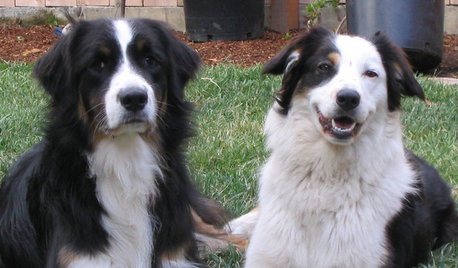
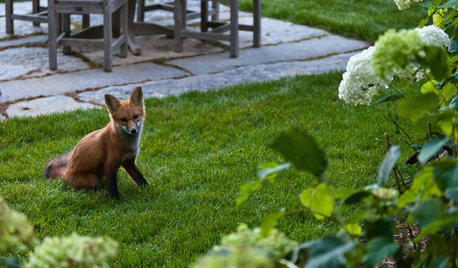
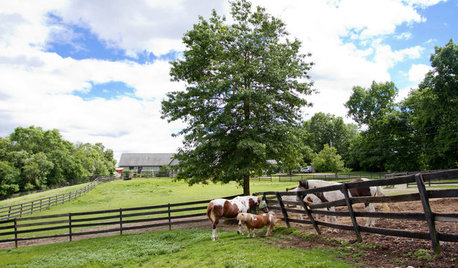


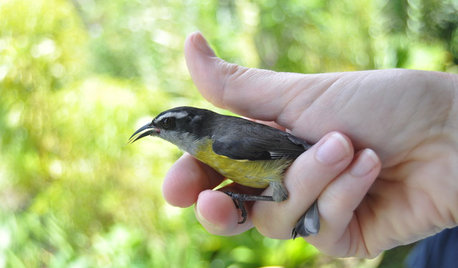

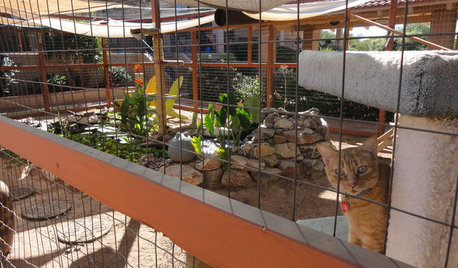








jacqueline9CA
dublinbay z6 (KS)
Related Discussions
Need Advice ASAP-Rooster Rescued Sunday-Possibly Injured
Q
OT... Wild Dog!
Q
brutuses: OT...need your help
Q
Need rescue help with transport
Q
seil zone 6b MI
mariannese
sammy zone 7 Tulsa
roseblush1Original Author